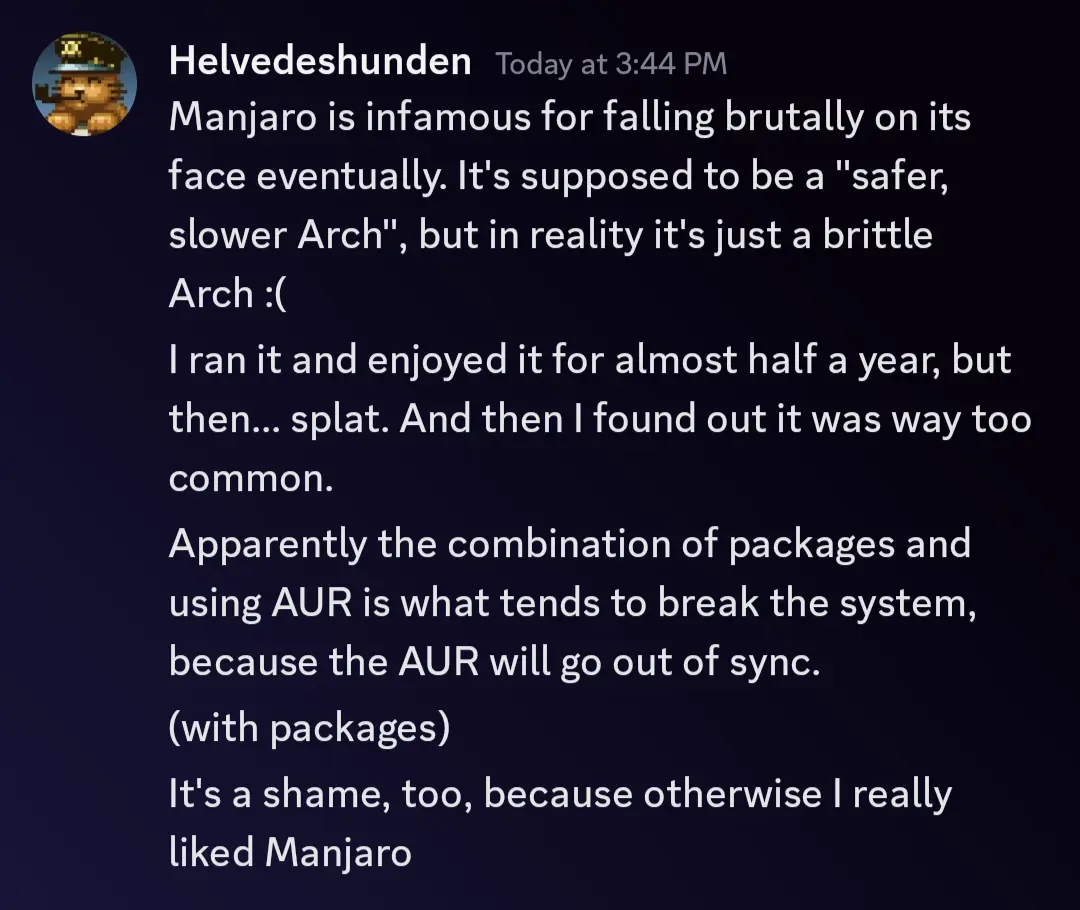249
you are viewing a single comment's thread
view the rest of the comments
view the rest of the comments
this post was submitted on 21 Dec 2023
249 points (94.3% liked)
Linux
48721 readers
956 users here now
From Wikipedia, the free encyclopedia
Linux is a family of open source Unix-like operating systems based on the Linux kernel, an operating system kernel first released on September 17, 1991 by Linus Torvalds. Linux is typically packaged in a Linux distribution (or distro for short).
Distributions include the Linux kernel and supporting system software and libraries, many of which are provided by the GNU Project. Many Linux distributions use the word "Linux" in their name, but the Free Software Foundation uses the name GNU/Linux to emphasize the importance of GNU software, causing some controversy.
Rules
- Posts must be relevant to operating systems running the Linux kernel. GNU/Linux or otherwise.
- No misinformation
- No NSFW content
- No hate speech, bigotry, etc
Related Communities
Community icon by Alpár-Etele Méder, licensed under CC BY 3.0
founded 5 years ago
MODERATORS

Odds are it would have come up on a regular Arch install too, and simply reinstalling is what fixed it.
EndeavourOS is essentially just a GUI installer for Arch with some defaults changed.
I was wondering this, too. I'm too new to Manjaro to have any opinion about its long-term stability, but it doesn't make intuitive sense to me that Manjaro would be less stable than a distro that is based solely on the AUR.
I wonder if Arch newbies choose Manjaro initially, improve their knowledge of Linux, then switch to Arch if their installation fails. After that, having reached Linux's final boss, they know that all further problems in Arch are just part of the experience.
Or is it maybe that Arch installations are often more minimalist than Manjaro and so are less likely to have conflicts? By way of example, and going from memory, the base EndevourOS install is around 900 packages, while the base Manjaro install is over 14,000 packages.
I really like my Manjaro installations, so as you can imagine, I'm hoping it isn't an inherently flawed distro.
I've been running Manjaro for about 6 years. I've only had self induced issues.
Arch is a better OS in that you have more control of exactly what it will do. But Manjaro also provides a great experience out of the box with all the major DEs. It really comes down to how much convenience are you willing to trade for control.
For what it's worth, I've only noticed the slower Manjaro repo helping me once when steam fonts broke on the arch repo. So I basically had a warning and was able to switch to the beta version of the steam client to avoid that issue. So the slower Manjaro repo is not a selling point IMO, but the DE tweaks and configurations are.
Looks like they've gotten better in the last year or so, but there's a pretty strong pattern of fuck-ups that have put a lot of the community off of Manjaro: https://manjarno.pages.dev/